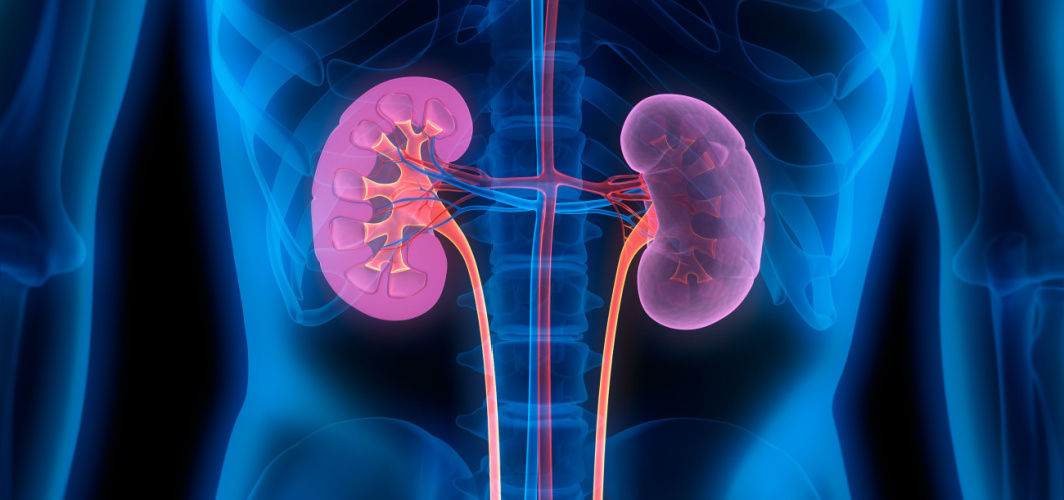Diabetes Management
Diabetic Nephropathy: Are Your Kidneys At Risk?
3 min read
By Apollo 24|7, Published on - 09 January 2023, Updated on - 11 December 2023
Share this article
0
0 like

Uncontrolled diabetes is known to damage the vital organs of the body such as the heart, liver, and kidneys. Diabetic nephropathy is one such serious complication of type 1 and type 2 diabetes that affects kidney function, resulting in excess fluid buildup in the body. The prevalence of diabetic nephropathy in India is around 34.4%. However, early diagnosis, treatment, and lifestyle changes can prevent the development of diabetic nephropathy and prevent its progression to end-stage kidney disease.
Symptoms Of Diabetic Nephropathy
Diabetic nephropathy may not cause any signs or symptoms in its early stages. However, as the condition progresses, a few symptoms that you may notice include:
- Swelling of hands, legs, feet or eyes
- Frequent urge to urinate
- Irregular blood pressure
- Fatigue
- Nausea and vomiting
- Loss of appetite
- Shortness of breath
- Presence of protein in the urine
- Persistent itching
Causes Of Diabetic Nephropathy
The kidneys are made of millions of tiny blood vessel clusters that filter wastes from your blood. These blood vessels tend to get damaged due to diabetes and hypertension (high blood pressure), resulting in reduced kidney function. Over time, poorly controlled diabetes and hypertension ultimately lead to kidney failure.
Risk Factors For Diabetic Nephropathy
If you have diabetes, the following factors can increase your risk for diabetic nephropathy:
- Uncontrolled blood sugar levels
- Uncontrolled blood pressure (hypertension)
- Smoking
- Obesity
- High blood cholesterol
- Family history of diabetes and kidney disease
Prevention Of Diabetic Nephropathy
If you have type 1 or type 2 diabetes, you can take proactive measures to delay the onset and progression of diabetic nephropathy. These include:
- Taking your medications regularly
- Maintaining a healthy Body Mass Index (BMI) by exercising
- Eating a balanced diet
- Routinely visiting your doctor for follow-up
Early diagnosis is key to controlling the progression of the disease. Annual screening for microalbuminuria may be recommended by your doctor. You can also talk to your doctor to know the tests that you must undergo to reduce your risk.
Treatment Of Diabetic Nephropathy
Treatment for diabetic nephropathy usually focuses on reducing the signs and preventing progression. The treatment includes:
- Medications to control blood pressure, blood sugar, and cholesterol levels.
- Medications to lower kidney inflammation and scarring.
In advanced cases of diabetic nephropathy, dialysis (a process to remove waste from the blood using mechanical support) or organ transplant may be recommended.
FAQs
1. What are the stages of diabetic nephropathy?
There are five stages of diabetic nephropathy:
Stage 1: Kidney damage is present, but there is normal kidney function with a glomerular filtration rate (GFR) of 90% or above. GFR depicts how well your kidneys are working.
Stage 2: Kidney damage with some loss of function and a GFR of 60% to 90%
Stage 3: Mild to severe loss of kidney function and a GFR of 30% to 59%
Stage 4: Severe loss of kidney function and a GFR of 15% to 29%
Stage 5: Kidney failure and a GFR under 15%
2. Can diabetic nephropathy be cured?
Diabetic nephropathy cannot be cured completely. However, its progression can be controlled significantly by effective monitoring and controlling of blood sugar and blood pressure levels.
3. How long does it take for diabetic nephropathy to develop?
Diabetic nephropathy usually develops gradually. Therefore, a diabetic can modify their lifestyle and lower their risk before the condition develops.
4. How is diabetic nephropathy diagnosed?
If you have diabetes and/or hypertension, your doctor would recommend blood tests, x-rays and ultrasounds to assess your kidney structure, size, and functioning. You may also need a CT scan or MRI to identify blood circulation in your kidneys and determine if your condition has progressed to diabetic nephropathy.
If you need expert guidance,
Consult An Apollo Nephrologist
You can also try the Apollo 24|7 Diabetes Self-Management Tool to log your sugar values, track patterns, know all about food nutrition and more.
Medically reviewed by Dr Sonia Bhatt.
Diabetes Management
Consult Top Diabetologists
View AllLeave Comment
Recommended for you
.jpg?tr=q-80)
Diabetes Management
Benefits of Magnesium for Diabetic Individuals
Understanding how various nutrients, like magnesium, can influence your diabetes management is crucial. Magnesium helps in improving insulin sensitivity and regulating blood sugar levels. However, individual dietary needs may vary and consulting a doctor before making significant changes to your diet is always advised. To support your diabetes management journey, consider a comprehensive programme like Apollo Super 6.

Diabetes Management
Breastfeeding Tips for Mothers with Diabetes
Breastfeeding while managing diabetes need not be a daunting task. With careful planning, it can be a beneficial journey for both mother and baby. Regular meals, smart snacking, and consistent monitoring of blood sugar levels are key strategies for successful breastfeeding. Remember, every journey is unique, so personalised advice from doctors is crucial. And remember, even as you navigate through this phase, the Apollo Super 6 programme is here to help you lead an active and healthy lifestyle.
.jpg?tr=q-80)
Diabetes Management
Eggs: A Nutritional Powerhouse for Diabetes Management
Can eggs be beneficial for those managing diabetes? Absolutely! They are packed with high-quality protein, and essential nutrients, and are low in carbohydrates. However, the way you cook and serve them matters. Boiling, poaching, and pairing with vegetables can enhance their nutritional profile. Remember, eggs should be part of a varied and balanced diet for effective diabetes management. If you want to learn more about how diet and lifestyle
Subscribe
Sign up for our free Health Library Daily Newsletter
Get doctor-approved health tips, news, and more.
Visual Stories

8 Fruits That are Incredibly Healthy for Diabetes
Tap to continue exploring
Recommended for you
.jpg?tr=q-80)
Diabetes Management
Benefits of Magnesium for Diabetic Individuals
Understanding how various nutrients, like magnesium, can influence your diabetes management is crucial. Magnesium helps in improving insulin sensitivity and regulating blood sugar levels. However, individual dietary needs may vary and consulting a doctor before making significant changes to your diet is always advised. To support your diabetes management journey, consider a comprehensive programme like Apollo Super 6.

Diabetes Management
Breastfeeding Tips for Mothers with Diabetes
Breastfeeding while managing diabetes need not be a daunting task. With careful planning, it can be a beneficial journey for both mother and baby. Regular meals, smart snacking, and consistent monitoring of blood sugar levels are key strategies for successful breastfeeding. Remember, every journey is unique, so personalised advice from doctors is crucial. And remember, even as you navigate through this phase, the Apollo Super 6 programme is here to help you lead an active and healthy lifestyle.
.jpg?tr=q-80)
Diabetes Management
Eggs: A Nutritional Powerhouse for Diabetes Management
Can eggs be beneficial for those managing diabetes? Absolutely! They are packed with high-quality protein, and essential nutrients, and are low in carbohydrates. However, the way you cook and serve them matters. Boiling, poaching, and pairing with vegetables can enhance their nutritional profile. Remember, eggs should be part of a varied and balanced diet for effective diabetes management. If you want to learn more about how diet and lifestyle


